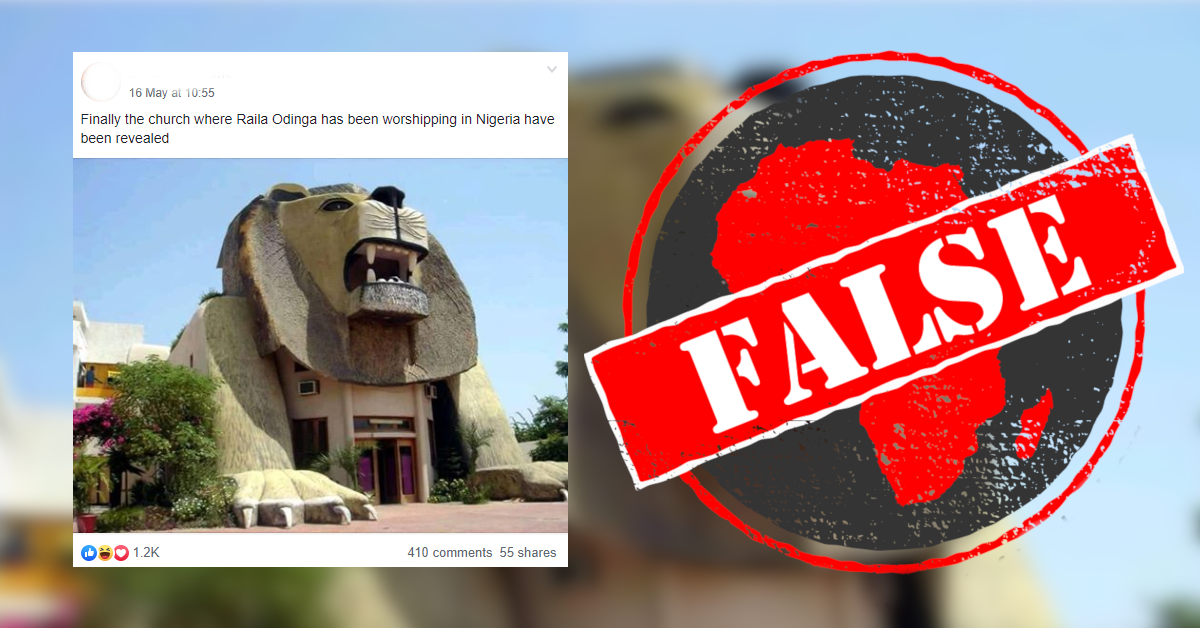In November 2019, Facebook users from the Moiben constituency in Uasin Gishu county in western Kenya were worried that there could be a lion roaming their villages.
They shared photos that they said was proof of the animal’s presence, and the damage it had caused.
The Standard newspaper quoted a Kenya Wildlife Service official confirming that there was a lion in the area and that authorities were investigating.
Days later, another user shared a photo of a lion at a traffic intersection, claiming it was in Mombasa, a coastal city southeast of the capital Nairobi.
“Meanwhile, a lion spotted in Mombasa posta stage ferry road,” the Facebook user said. “Watu wa Msa jihadharini,” they added in Kiswahili, which means “please beware”.

A reverse image search of the photo shows it was originally used in an article on the UK-based Caters News Agency website on 15 April 2016.
The article reported on a stray lion spotted strolling the streets of Johannesburg, South Africa.
The lion, named Columbus, was in fact used in a local film production and had been borrowed from a nearby lion park, the article said.
“According to the lion park, it is not the first time that Columbus has courted the limelight and has previously appeared in a film named Blended and also numerous adverts.”
Other photos of Columbus in his starring role were published by UK newspapers the Sun, Daily Mail and the Mirror. – Dancan Bwire
They shared photos that they said was proof of the animal’s presence, and the damage it had caused.
The Standard newspaper quoted a Kenya Wildlife Service official confirming that there was a lion in the area and that authorities were investigating.
Days later, another user shared a photo of a lion at a traffic intersection, claiming it was in Mombasa, a coastal city southeast of the capital Nairobi.
“Meanwhile, a lion spotted in Mombasa posta stage ferry road,” the Facebook user said. “Watu wa Msa jihadharini,” they added in Kiswahili, which means “please beware”.

Three-year-old photo from South Africa
A reverse image search of the photo shows it was originally used in an article on the UK-based Caters News Agency website on 15 April 2016.
The article reported on a stray lion spotted strolling the streets of Johannesburg, South Africa.
The lion, named Columbus, was in fact used in a local film production and had been borrowed from a nearby lion park, the article said.
“According to the lion park, it is not the first time that Columbus has courted the limelight and has previously appeared in a film named Blended and also numerous adverts.”
Other photos of Columbus in his starring role were published by UK newspapers the Sun, Daily Mail and the Mirror. – Dancan Bwire
Republish our content for free
For publishers: what to do if your post is rated false
A fact-checker has rated your Facebook or Instagram post as “false”, “altered”, “partly false” or “missing context”. This could have serious consequences. What do you do?
Click on our guide for the steps you should follow.
Publishers guideAfrica Check teams up with Facebook
Africa Check is a partner in Meta's third-party fact-checking programme to help stop the spread of false information on social media.
The content we rate as “false” will be downgraded on Facebook and Instagram. This means fewer people will see it.
You can also help identify false information on Facebook. This guide explains how.


Add new comment